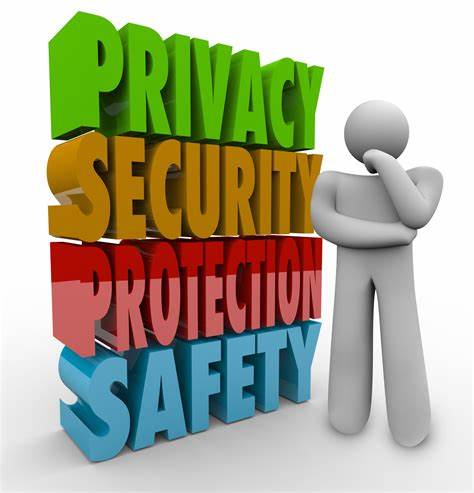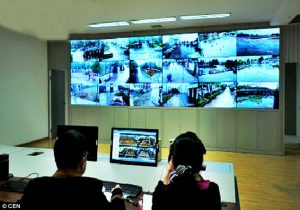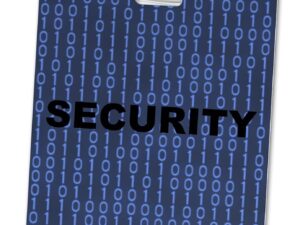
Imagine you are eating dinner with your family when you get a phone call from the Security Officer on the evening shift at the office. She informs you the CCTV facial recognition software has detected the disgruntled ex-husband of one of the evening shift employees and he is currently at the front door, and he is not smiling. As the Security Manager, you instruct the officer to call the police and not permit him entry into the building. The police arrive, and after questioning him, they find a handgun hidden in his waistband. They arrest him and you have him served with “No Trespassing” papers. Thanks to facial recognition and your CCTV system, you averted a seriously dangerous situation.
Cameras and their integrated software technologies have provided security professionals with incredible tools for  their crime-prevention toolbox. They have also proven to be some of the best producers of evidence for crimes that have been committed in their view. As the development of new technologies, such as facial recognition, continues to find new ways to zero in on people, the uses of these technologies are becoming more diverse. This diversity should cause us to ask ourselves a couple of questions, the first of which should be, “Is this ethical?”
their crime-prevention toolbox. They have also proven to be some of the best producers of evidence for crimes that have been committed in their view. As the development of new technologies, such as facial recognition, continues to find new ways to zero in on people, the uses of these technologies are becoming more diverse. This diversity should cause us to ask ourselves a couple of questions, the first of which should be, “Is this ethical?”
Imagine waking up in the morning, and as you prepare yourself to leave for work, you take a moment to read the notifications on your phone. The daily notification of your “Social Credit” balance shows twenty-five points deducted from your balance of five-thousand social credit points. You click on the notification link to find out why you lost the points and discover that you crossed the street the day before without waiting on the crosswalk light to turn green. It appears someone watched you; not a police officer directly, but a camera that, not only recorded your criminal behavior but also identified you among the hundreds of people walking the street around you. Now, the credit you needed to buy a new water heater is in jeopardy. You broke the rules, and now, you pay the price. Its cold showers for the next several weeks!
In a Time Magazine article in November of 2019, author, Charlie Campbell identifies the most surveilled city in the world as Chongqing, China with 2.58 million cameras. These cameras detect criminals, missing people, and crimes as they happen, in real-time. While the sheer number of cameras makes some people feel safe, uses other than crime prevention is now surfacing which brings serious concern to many. China is utilizing this camera technology to “encourage” positive behavior in its citizens. Citizens of Rongcheng, China are given a balance of 1,000 points. Each time a person commits an infraction, points are deducted from the balance. Examples of those infractions are things like fighting, not cleaning up after your dog, or crossing the street illegally. On the other side, there are ways to gain points as well, such as donating blood and doing good deeds for others. Having a large balance of points earns a person benefits such as a discount on bills and good health care. Having too few points has an adverse effect making it difficult or impossible to get loans or other necessary benefits.
China is experimenting with this “Social Credit” system utilizing CCTV cameras and software technologies to prevent  crime and engineer good behavior. In some cases, they are seeing positive results with their system, and are continuing to test it in other areas of the country. The results of the program appear promising to other countries as well as they are paying attention to China’s technological applications. In time, this technology will find its way around the world and control the behavior of citizens and visitors alike. To take it one step further, what if multiple countries share databases of this information and add or deduct points based on an individual’s behavior across all the places they have traveled around the world.
crime and engineer good behavior. In some cases, they are seeing positive results with their system, and are continuing to test it in other areas of the country. The results of the program appear promising to other countries as well as they are paying attention to China’s technological applications. In time, this technology will find its way around the world and control the behavior of citizens and visitors alike. To take it one step further, what if multiple countries share databases of this information and add or deduct points based on an individual’s behavior across all the places they have traveled around the world.
Ethics should always remain front and center of the application of all security technology, especially CCTV technology. Is “Social Credit” synonymous with crime prevention? This is the question security professionals and manufacturers will have to ask themselves. When technology can pinpoint one individual out of a crowd of thousands, it is proof that we have certainly obtained the power to find the missing and the wanted, but should it be within the state’s power to use this technology to engineer specific behaviors?




